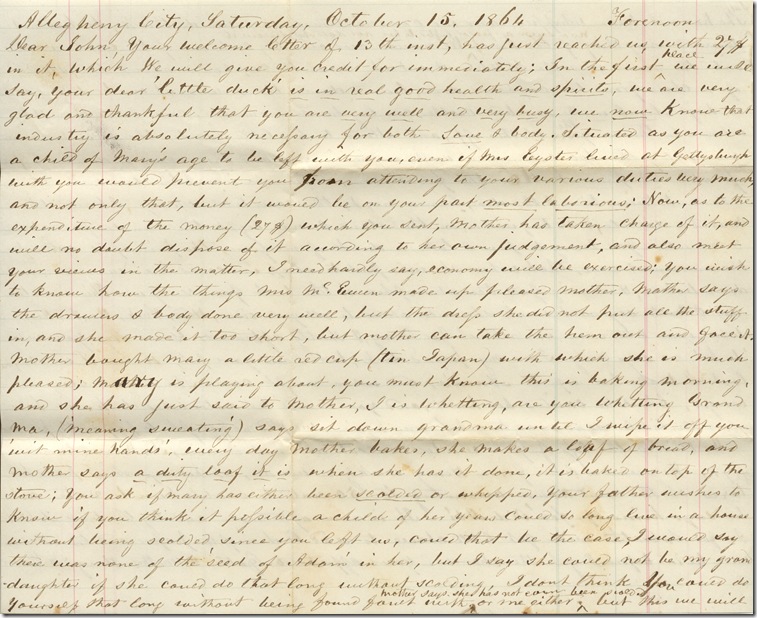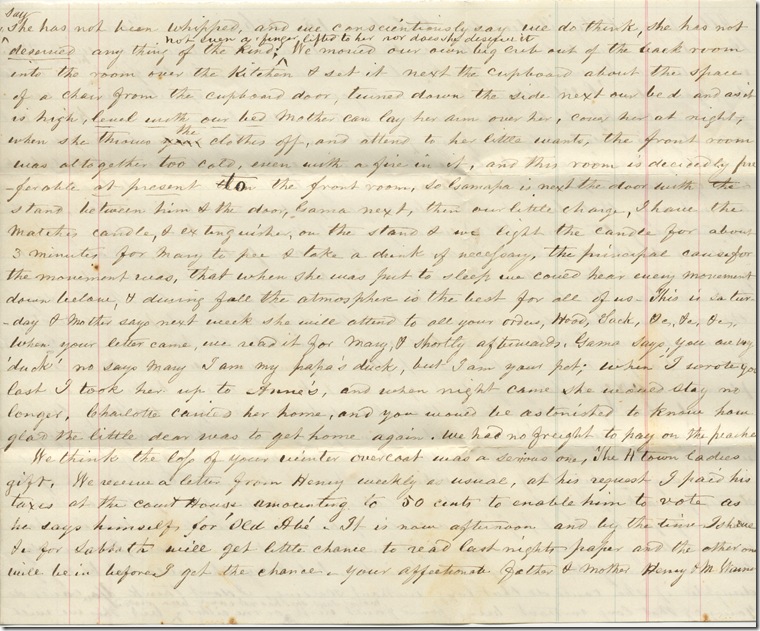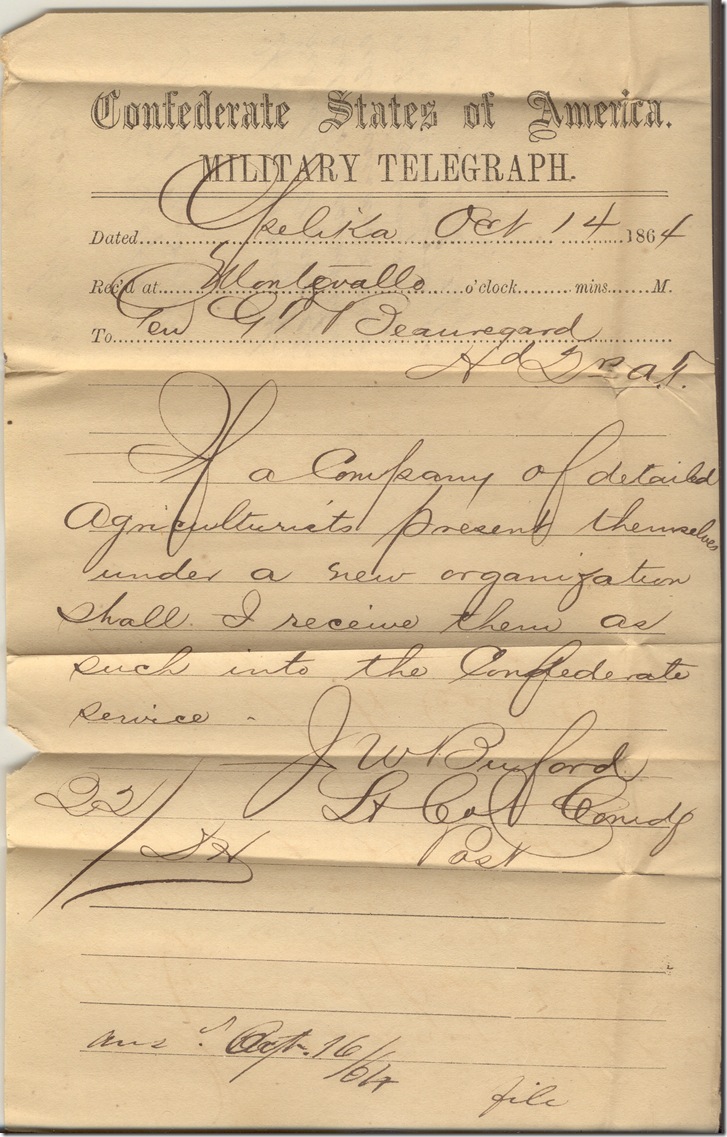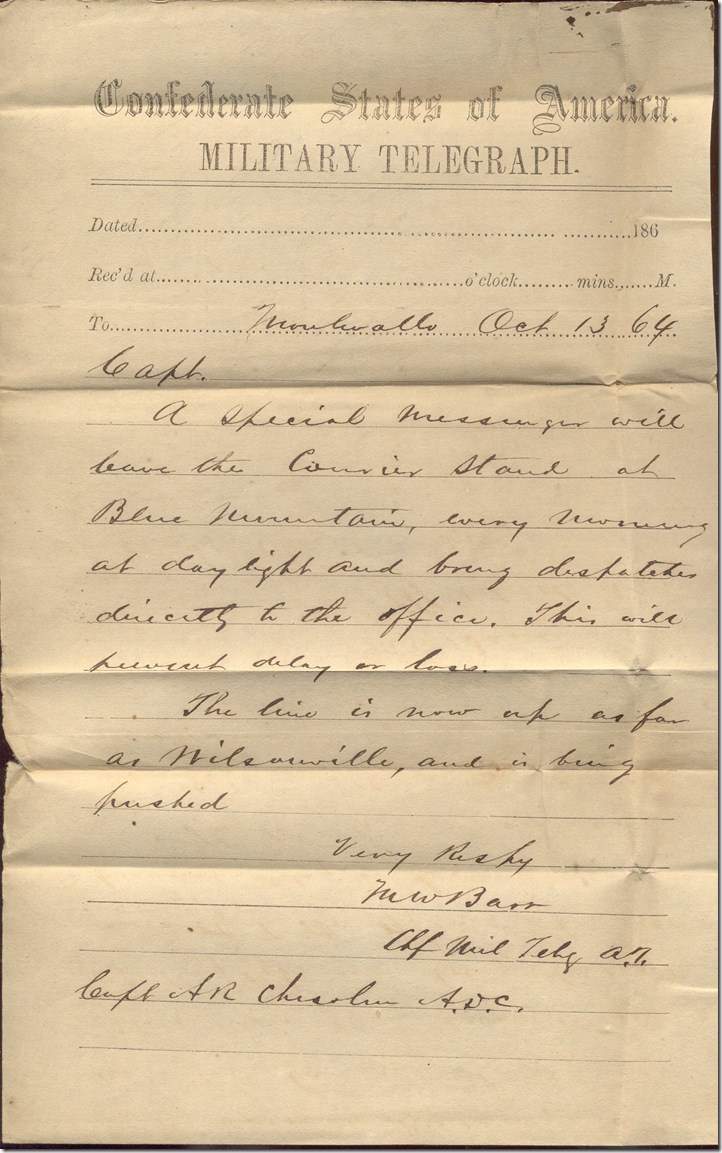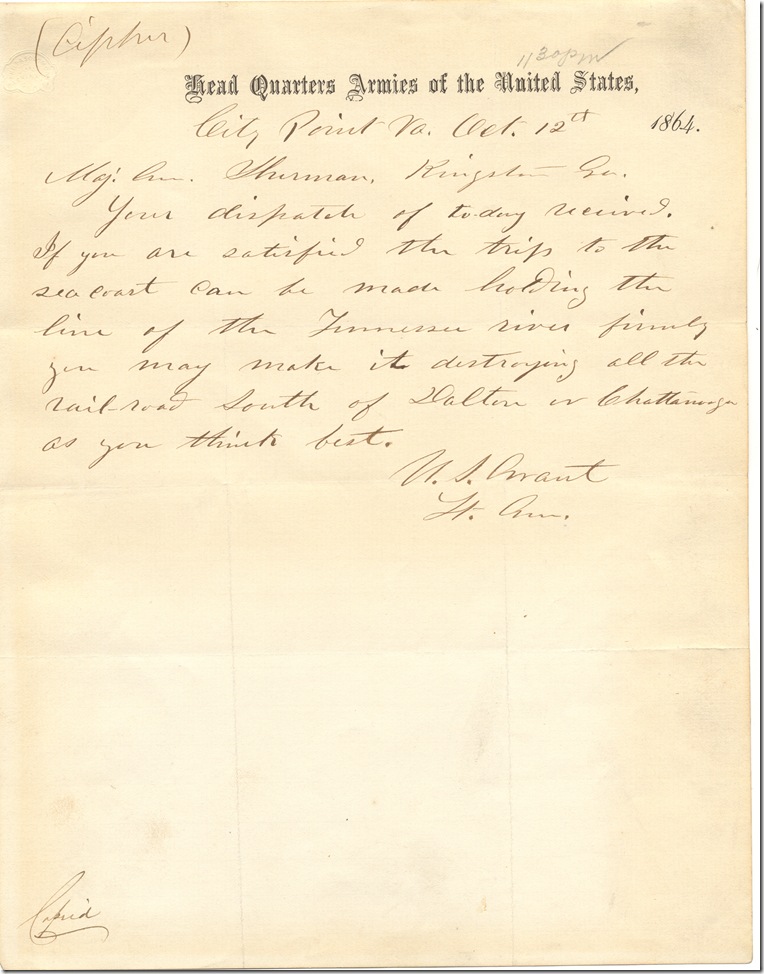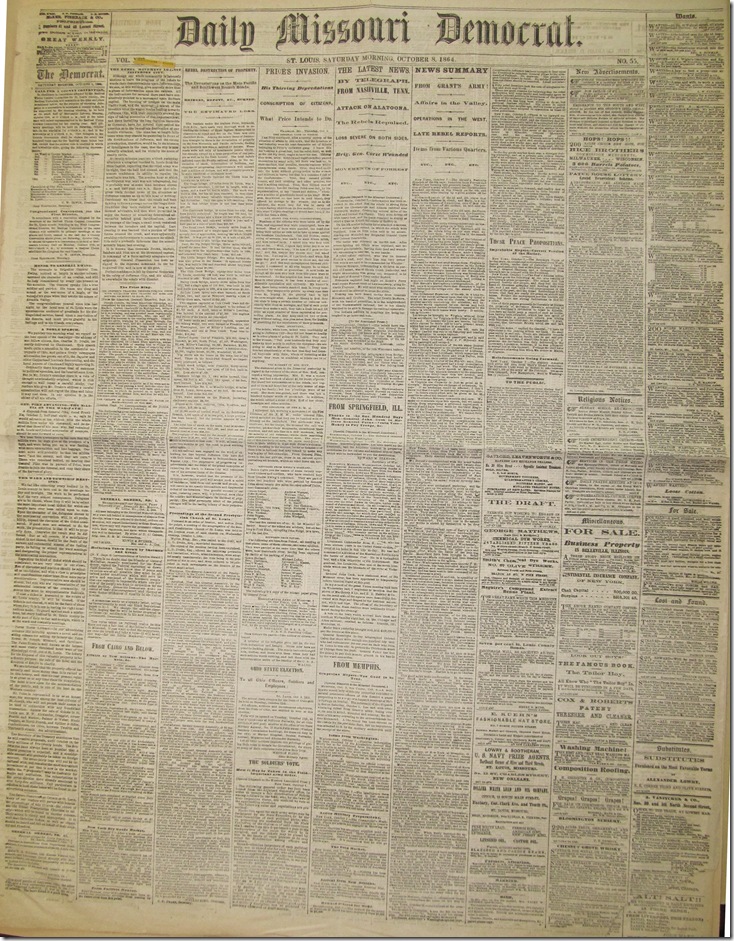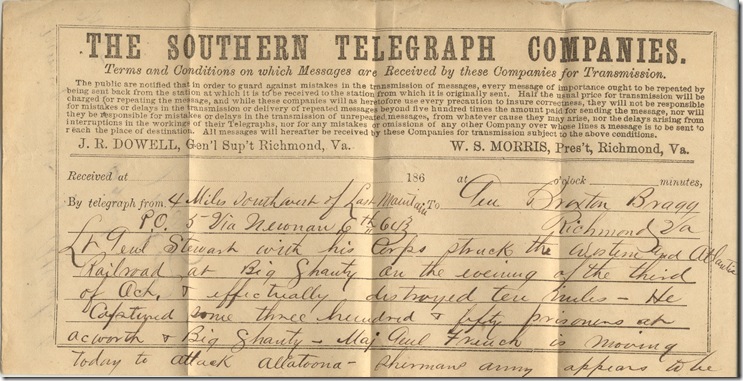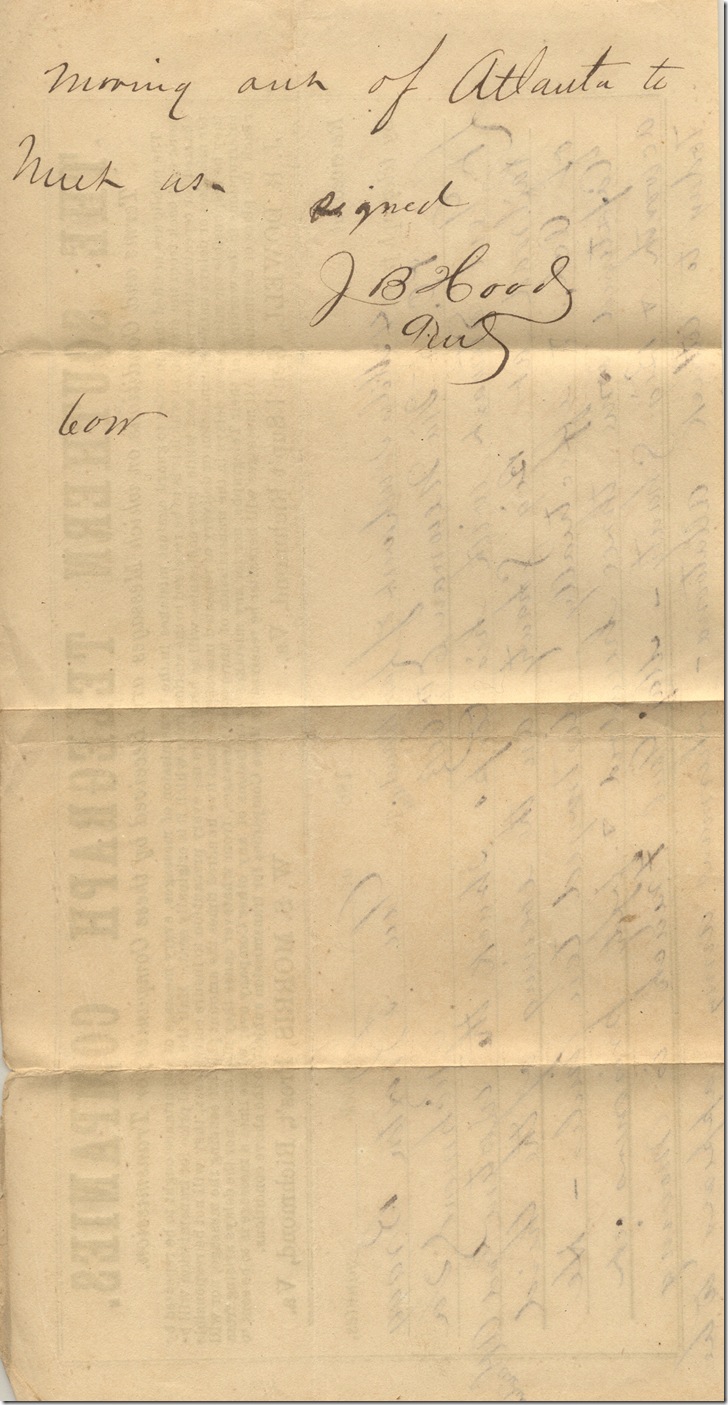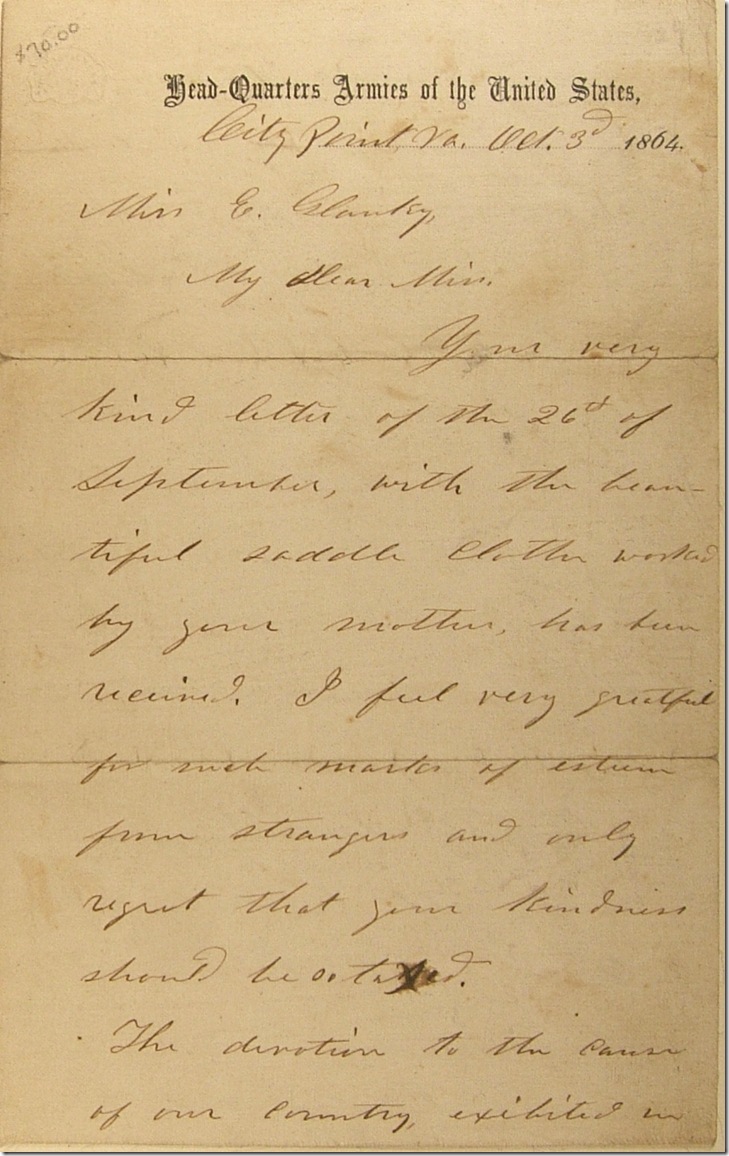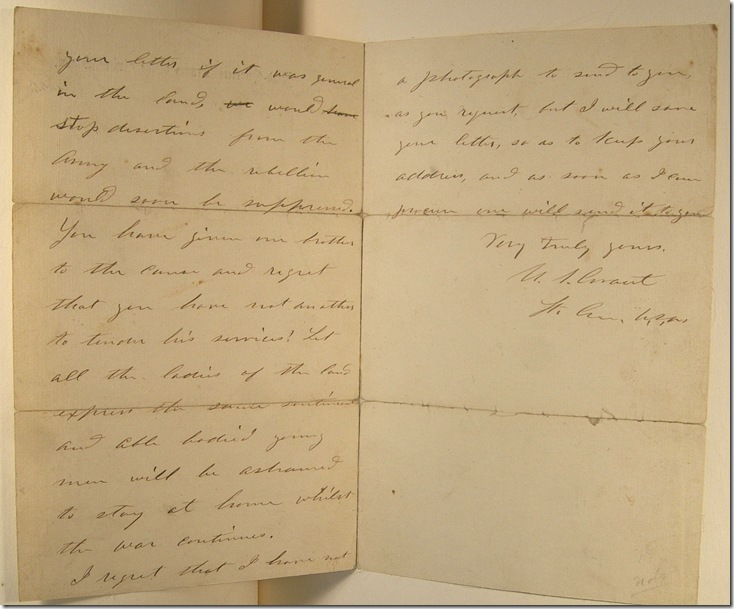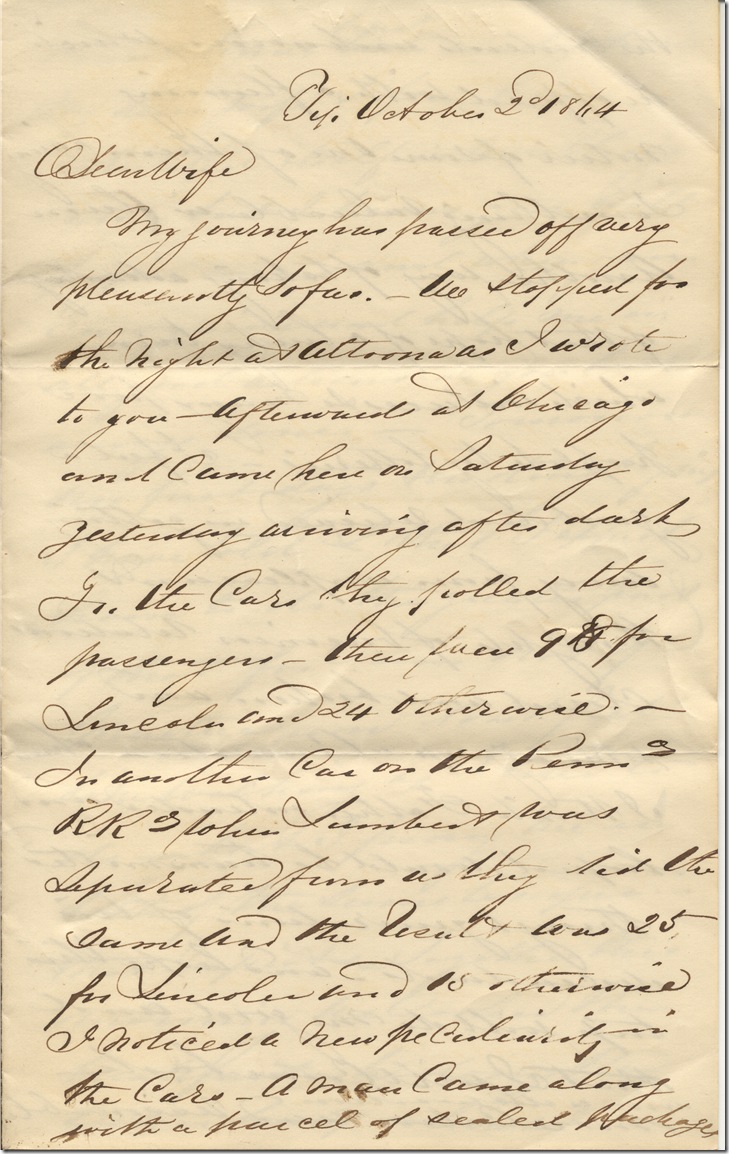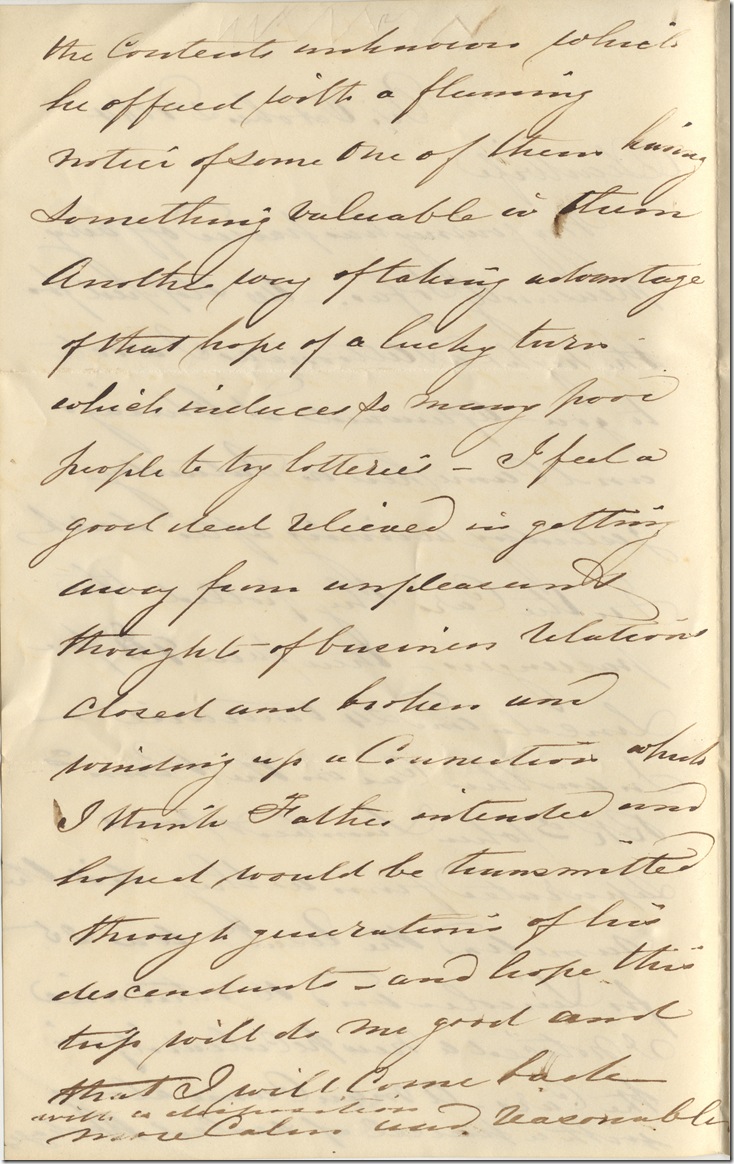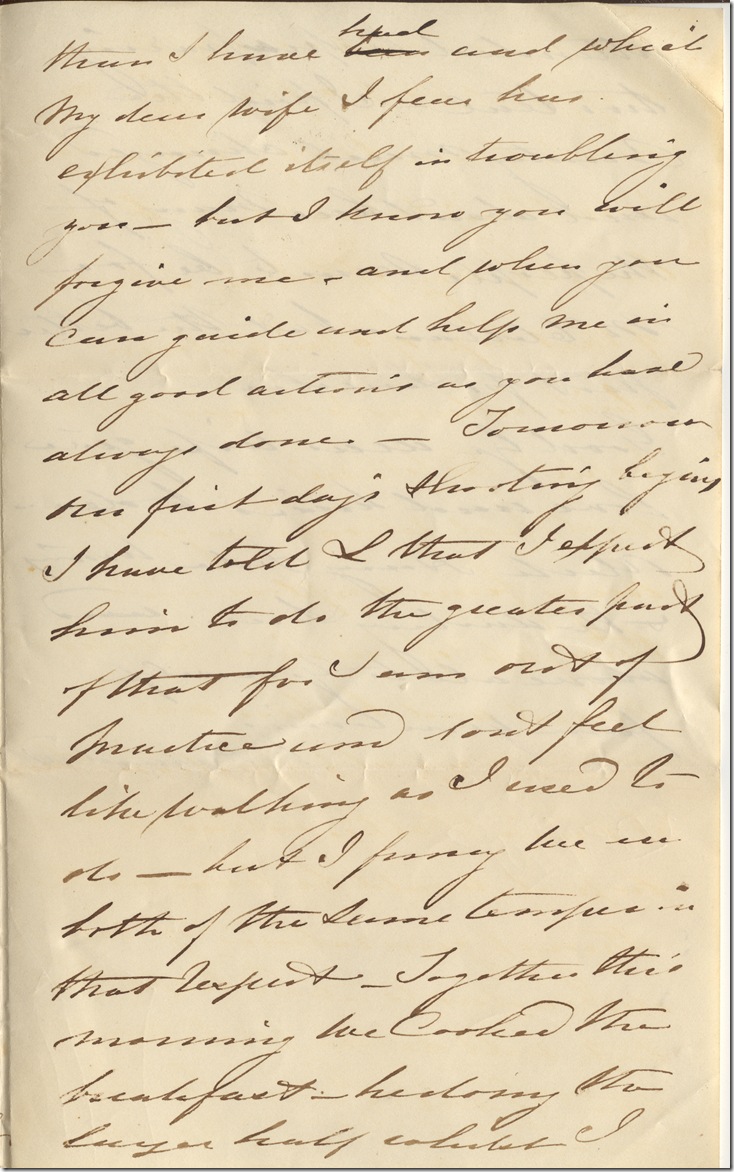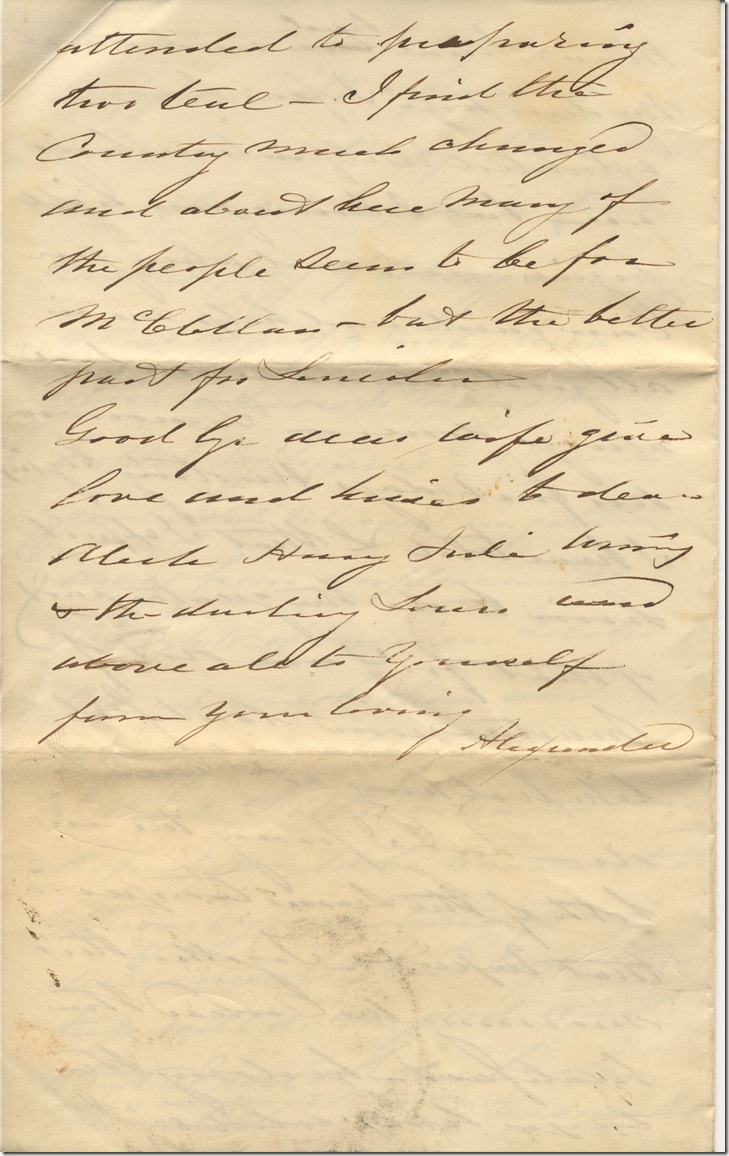Henry and Mary Warner lived in Allegheny City, Pennsylvania, now part of Pittsburgh. They are the great-grandparents of poet Marianne Moore. By the 1860s they had three surviving children: John, Henry, and Anne. Their letters to John, a Presbyterian minister living in Gettysburg, are preserved as part of Marianne Moore’s family papers.
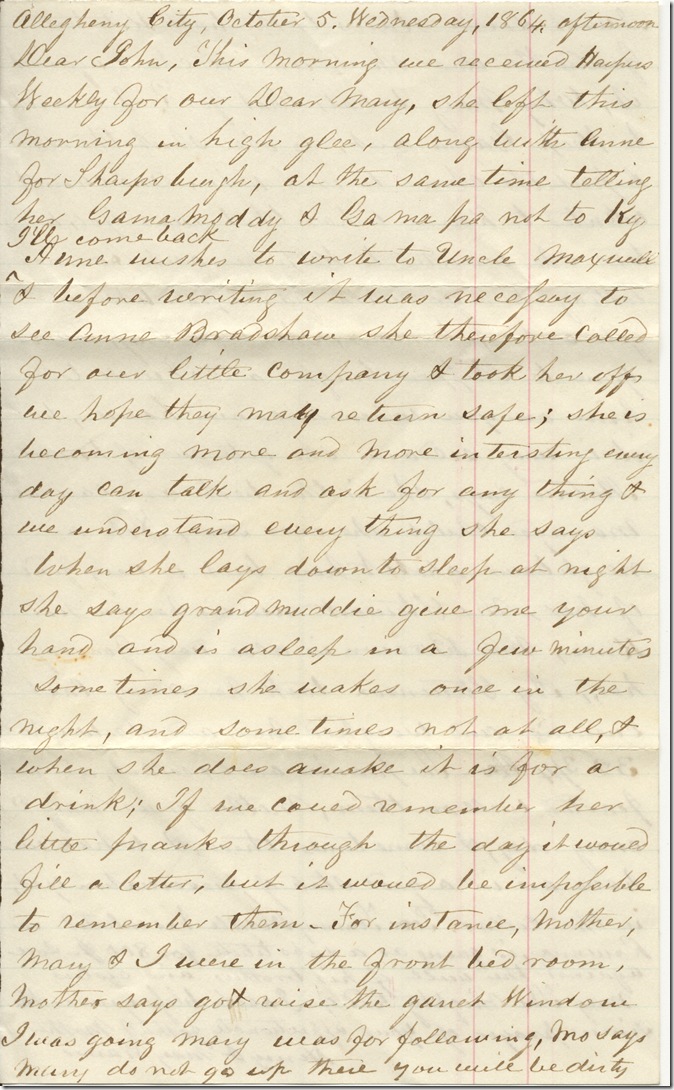
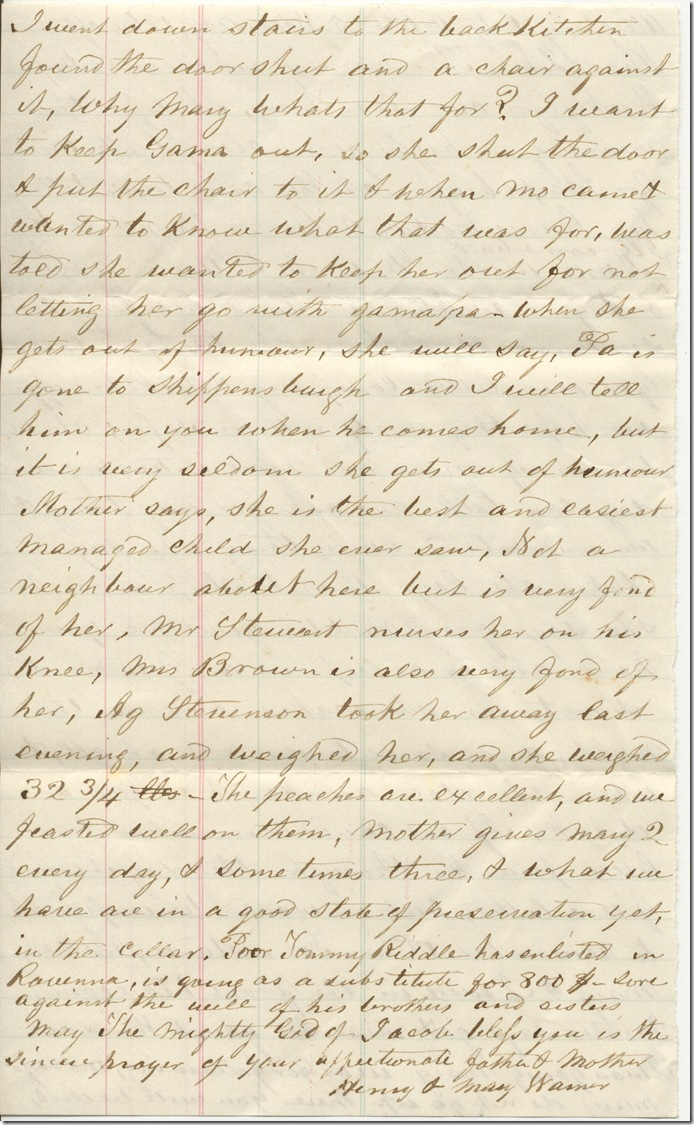
Transcript:
Allegheny City, October 5, Wednesday, 1864, afternoon
Dear John, This morning we received Harpers Weekly for our Dear Mary, she left this morning in high glee, along with Anne for Sharpsburgh, at the same time telling her Gamamoddy & Gamapa not to __ I’ll come back. Anne wishes to write to Uncle Maxwell & before writing it was necessary to see Anne Bradshaw she therefore called for our little company & took her off we hope they may return safe; she is becoming more and more interesting every day can talk and ask for any thing & we understand every thing she says. When she lays down to sleep at night she says Grandmuddie give me your hand and is asleep in a few minutes sometimes she wakes once in the night, and sometimes not at all, & when she does awake it is for a drink; If we could remember her little pranks through the day it would fill a letter, but it would be impossible to remember them—For instance, Mother, Mary & I were in the front bed room, Mother says got raise the garret Window I was going Mary was for following, Mo says Mary do not go up there you will be dirty I went down stairs to the back kitchen found the door shut and a chair against it, why Mary whats that for? I want to keep Gama out, so she shut the door & put the chair to it & when Mo came & wanted to know what that was for, was told she wanted to keep her out for not letting her go with gamapa—When she gets out of humour, she will say, Pa is gone to Shippensburgh and I will tell him on you when he comes home, but it is very seldom she gets out of humour Mother says, she is the best and easiest managed child she ever saw, Not a neighbour about here but is very fond of her, Mr Stewart nurses her on his knee, Mrs Brown is also very fond her of, Ag Stevenson took her away last evening, and weighed her, and she weighed 32 ¾ lbs—The peaches are excellent, and we feasted well on them, Mother gives Mary 2 every day, & some times three, & what we have are in a good state of preservation yet, in the cellar. Poor Tommy Riddle has enlisted in Ravenna, is going as a substitute for 800$– sore against the will of his brothers and sisters May the Mighty God of Jacob bless you is the sincere prayer of your affectionate father & mother
Henry & Mary Warner
Citation: Henry and Mary Warner, autograph letter signed to John Riddle Warner. Allegheny City [Pittsburgh],5 October 1864. Moore VI:06:10
